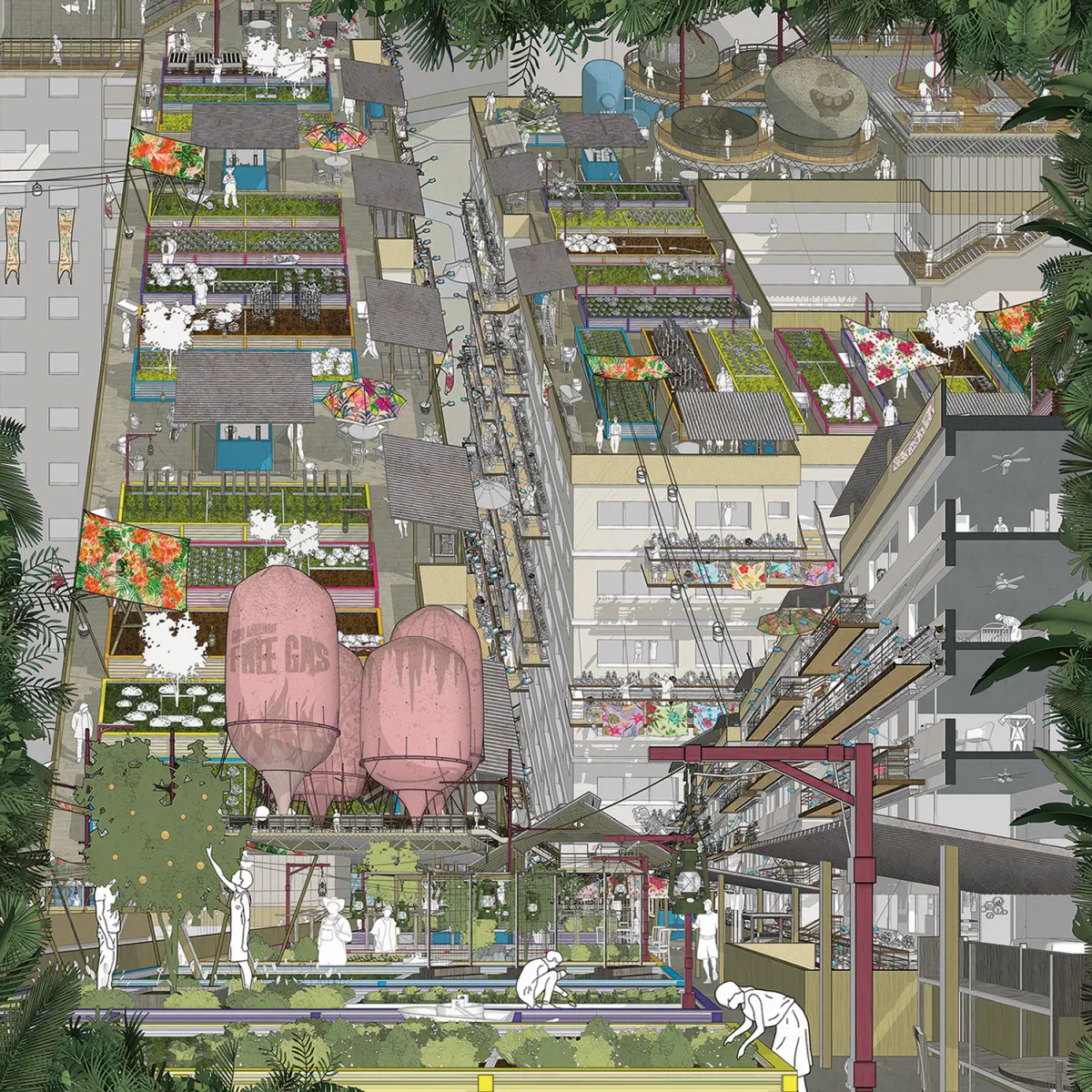
Happiness Narratives(s): The Green Party
BY Ow Yeong Jun Jie
SUPERVISED BY Adj. Assoc. Prof. Peter Sim
STUDIO THEME POSSIBLE WORLDS: AN ARCHITECTURE OF SIMULTANEOUS TEMPORALITIES
Abstract
The Green “Party” is an exploration of a prominent “chapter” within a larger collection of “new happiness narratives” in Singapore. Seeking to uncover how Singaporeans are beginning to react to the present monotheistic “national narrative”, by imparting physical and cultural changes within the typical neighbourhood, it tries to embody the country’s many existing “hacks of happiness”, and translates them into lifestyles of the future that revolves around the more sustainable, self-dependable and altruistic values of these Singaporeans. By turning to urban farming as a way to impart change in the built environment, as well as a way to give back to the community with donations and sustainable resources, these people aim to create communities centred around that set of beliefs. The proposal hence projects a tangible way for one to “grow” and “cultivate” their happiness, all from a simple act of planting in their neighbourhood.
Supervisor Comments
Meaning and Gardening In our capitalist world, should we be rethinking measures of success and happiness? This project takes cues from emergent calls for more responsible and empathetic ways of living. Precipitated by the post covid gardening boom, the project explores the possibility where a semi agrarian populace emerges from the urbanites, in a collective response to the problems of high capitalism and environmental threats. It imagines a series of interconnected extended villages on top HDB flats existing alongside mainstream Singapore society. They form a parallel community, to live in a way that addresses the major issues of the day – environmental sustainability, food sustainability, energy scarcity and the loss of empathy and mental well-being. It hints at the possibility of how Singapore may look like if it develops into a more heterogenous and diverse society. One where differences in values, lifestyles and definitions of happiness, fragments the population into smaller, but complementary & overlapping communities based on shared ideals.
- Adj. Assoc. Prof. Peter Sim